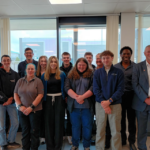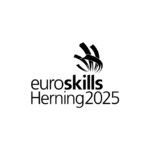Dr Mandy Crawford-Lee, Chief Executive, University Vocational Awards Council
Ensuring everyone reaches their potential is vital in both further education (FE) and higher education (HE). Collaboration and partnership are key for equality, diversity, and inclusion (EDI).
FE and HE must address all levels of skills demanded by the economy. Colleges train essential roles like plumbers and mechanics, while universities (although not exclusively) educate professionals like nurses, engineers and farmers. Neither colleges nor universities alone can meet all skills needs. Both must excel in training, address participation barriers, and promote social mobility.
UVAC advocates for increased FE and HE collaboration and supports HE delivery by FE. We urge future skills policies to prioritise such collaboration for greater inclusivity and to help more individuals reach their potential. Diverse talent pools lead to better-prepared young people and adults, and increased employer choice, fostering higher-performing workplaces that reflect their communities.
The case for removing barriers for learners from under-served communities and supporting both FE and HE is clear. Delivering higher technical and professional skills programmes promotes collaboration, particularly with articulated progression pathways. To fulfil the Government’s objectives of bite-sized learning and improved credit accumulation and transfer, increased collaboration is essential.
In discussing apprenticeships, EDI, and social mobility, we must maintain an ambitious approach. Rejecting the idea of apprenticeships as solely for others’ children or for lower-level jobs, we advocate for an aspirational, all-age programme that helps individuals from diverse backgrounds secure high-productivity craft, technical, and professional positions essential to the economy.
To fully leverage apprenticeships for social mobility and EDI, we must do more to support individuals from disadvantaged backgrounds access higher and degree apprenticeships. UVAC suggests integrating apprenticeships into a skills ladder, ensuring apprentices are equipped to progress. We propose requiring employers to commit to an equality pledge to expand apprenticeship opportunities. Additionally, we urge colleges, universities, and training providers to develop new approaches to maximise the impact of higher and degree apprenticeships.
Promoting diversity and inclusion in our learner cohort is crucial. We celebrate and support our EDI champions and practitioners who work diligently to create and identify models of best practice. They creatively disrupt existing practices to ensure effective interventions promote EDI.
Signing the EDI pledge is a way of committing to a strategy and a strong intent that technical, vocational and professional education pathways are made accessible and inclusive to all.



